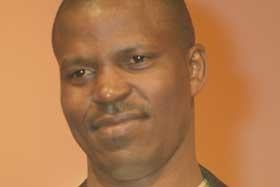
Richard Kavuma produced an eight-part series* analysing Uganda’s attempts to achieve the Millennium Development Goals (MDGs).
He went around the country to witness the plight of local residents and assess the attempts to improve their lot. He studied every document he could find on MDGs in Uganda and interviewed other stakeholders, including the UN, government and NGO officials, to get a broader picture of achievements, failures, and obstacles, and what lay ahead.
How does the media operate in Uganda?
With more than 150 radio stations and at least 11 free-to-air TV stations, electronic media reaches more people, but much of its content is entertainment rather than journalism.
Generally, the much-smaller print media enjoys more professional standards, partly due to relatively more qualified staff as well higher public scrutiny and attempts at self-regulation.
But it has falling readership figures, poor facilitation of journalists and a diminishing number of role models.
Is the independent media strong in Uganda?
Media houses that try to be forums of free expression are under constant pressure from President Museveni’s government.
The Monitor (now the Daily Monitor) newspaper, Radio Veritas and KFM radio have all been previously closed temporarily because of their work. Central Broadcasting Service radio has also been threatened.
Also, the media largely depends on advertising from a relatively small private sector, and there appears to be an emerging alliance between state and business which threatens the free media’s income if it does not play along.
At the awards you said: ‘This award is in recognition for journalism that strives to put people at the forefront.”
What I meant was that I saw the award as a recognition not for me but of that kind of journalism.
When you look at the MDGs, you are talking about abject poverty, children not going to school, girls being denied equal opportunities just because they are girls, babies dying because of simple things like malaria, mothers dying because the local health centre just does not work…
If journalists can strive to give these issues a higher place in the news hierarchy, humanity would benefit.
The Weekly Observer’s decision to dedicate more than five per cent of its weekly space for eight consecutive weeks to the series was a statement about how importantly these issues were regarded.
How important is winning an award like this?
My editors and colleagues at The Weekly Observer and other journalists in the country say I have done them proud. One of my former editors said I was an ‘inspiration to all in the profession because of the passion I bring to a story”.
I hope my award can inspire more passion, especially in upcoming journalists.
Email pged@pressgazette.co.uk to point out mistakes, provide story tips or send in a letter for publication on our "Letters Page" blog

